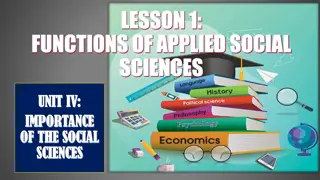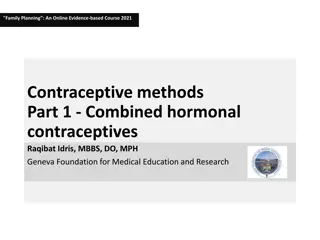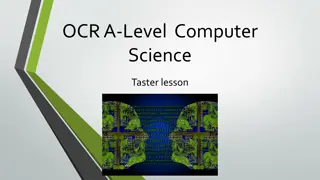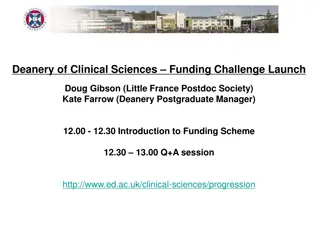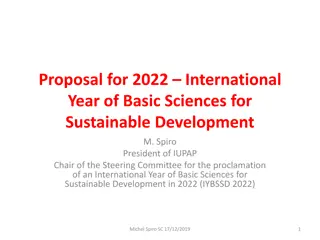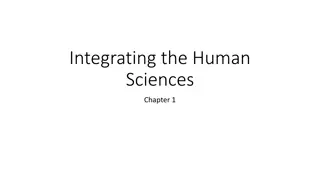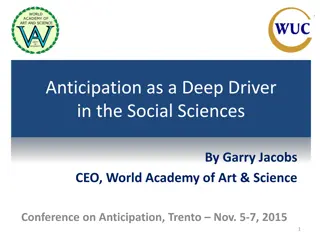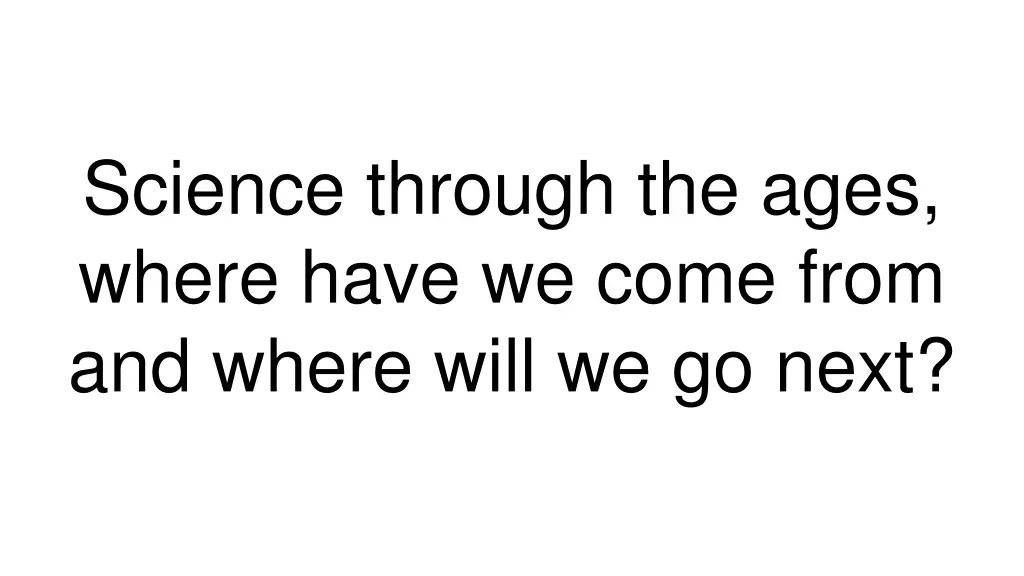
Exploring Scientists and Discoveries Through Time
Delve into the world of scientific exploration with this journey through the ages, highlighting key scientists, their groundbreaking discoveries, and the evolution of knowledge and innovation. From Ancient Greece to the 20th century, witness the contributions of visionaries like Aristotle, Marie Curie, and Albert Einstein, shaping our understanding of the universe. Unravel the mysteries of DNA, quantum theory, and the laws of motion as you embark on this captivating historical adventure in science.
Download Presentation

Please find below an Image/Link to download the presentation.
The content on the website is provided AS IS for your information and personal use only. It may not be sold, licensed, or shared on other websites without obtaining consent from the author. If you encounter any issues during the download, it is possible that the publisher has removed the file from their server.
You are allowed to download the files provided on this website for personal or commercial use, subject to the condition that they are used lawfully. All files are the property of their respective owners.
The content on the website is provided AS IS for your information and personal use only. It may not be sold, licensed, or shared on other websites without obtaining consent from the author.
E N D
Presentation Transcript
Science through the ages, where have we come from and where will we go next?
1. You are going to match up some information about scientists over the last 2000 years. 2. You will attempt to match the dates, locations and discoveries/research to the scientist.
Slides 4 and 5 the facts, dates and scientists are jumbled Slides 7 and 8 are the correct answers
300-400 BC Ancient Greece Rosalind Franklin Started classifying animals and plants. Came up with the concept of matter. Hippocrates Albert Einstein The father of medicine Studied the Human body and started developing medical ethics. Researched the structure of DNA. Was robbed of the Nobel Prize. 20th Century London 20th Century Germany Developed Quantum Theory, was a Nobel Prize winner - revolutionised atomic and sub-atomic Physics 300-400 BC Ancient Greece Max Planck Only person to win 2 Nobel Prizes (One in Chemistry and one in Physics). Died because of their discovery. Marie Curie 20th Century Poland 20th Century Germany Came up with the theory of relativity resolving ideas of Space, time and gravity. Later worked in the USA Aristotle
Over 100 inventions many of which involve variations on fluid pressures in containers. Introduced the decimal point and arabic numerals (what we use today). 17th Century AD London, UK 9th Century AD Persia Leonardo da Vinci Isaac Newton Worked on vision/optics and deepened our understanding of reflection and refraction. 11th Century AD Cairo Ibn al-Haytham Only person to win 2 Nobel Prizes (One in Chemistry and one in Physics). Died because of their discovery. Banu Musa 16th Century AD Florence, Italy Galileo Galilei A polymath explored and developed many areas including Anatomy, Mechanics and Engineering. 15th Century AD Anchiano, Italy Revolutionised the Laws of motion and Universal gravitation. Sanad ibn Ali 9th Century Modern day Pakistan
Aristotle 300-400 BC Ancient Greece Started classifying animals and plants. Came up with the concept of matter. The father of medicine Studied the Human body and started developing medical ethics. Hippocrates 300-400 BC Ancient Greece Researched the structure of DNA. Was robbed of the Nobel Prize. Rosalind Franklin 20th Century London Developed Quantum Theory, was a Nobel Prize winner - revolutionised atomic and sub-atomic Physics Max Planck 20th Century Germany Only person to win 2 Nobel Prizes (One in Chemistry and one in Physics). Died because of their discovery. Marie Curie 20th Century Poland Came up with the theory of relativity resolving ideas of Space, time and gravity. Later worked in the USA Albert Einstein 20th Century Germany
Sanad ibn Ali 9th Century Modern day Pakistan Introduced the decimal point and arabic numerals (what we use today). Over 100 inventions many of which involve variations on fluid pressures in containers. Banu Musa 9th Century AD Persia Worked on vision/optics and deepened our understanding of reflection and refraction. 11th Century AD Cairo Ibn al-Haytham A polymath explored and developed many areas including Anatomy, Mechanics and Engineering. Leonardo da Vinci 15th Century AD Anchiano, Italy Only person to win 2 Nobel Prizes (One in Chemistry and one in Physics). Died because of their discovery. 16th Century AD Florence, Italy Galileo Galilei 17th Century AD London, UK Revolutionised the Laws of motion and Universal gravitation. Isaac Newton
1. Now we are going to place these scientists on a timeline and Analyse WHERE & WHEN this research was prominent in the world at various points in our history. Is there a pattern to time and location?
20th Century BC 0AD
Discussing the world around us Consider the economic, political and societal pressures in the world today. Will the world of science continue to be dominated by Europe and the USA? Where will the next hib of science be?



